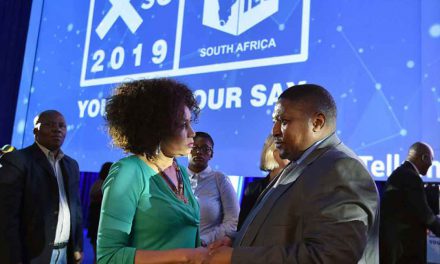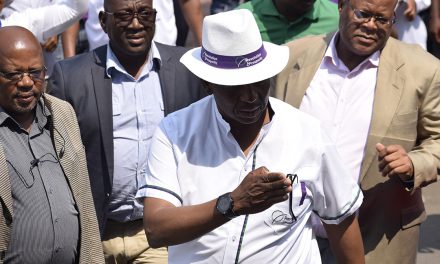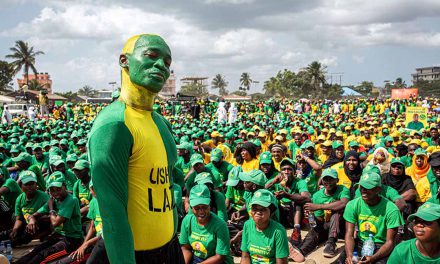Lesotho General Election Quick Facts
- General elections are scheduled to be held in Lesotho on 7 October 2022 to elect all 120 members of the National Assembly, the lower house of the Parliament.
- Members of the national assembly are elected using a Mixed Member Proportional (MMP) representation system.
- The Leader of the majority party in the National Assembly becomes the Prime Minister.
- The previous election (2017) saw a voter turnout of 46.37%.
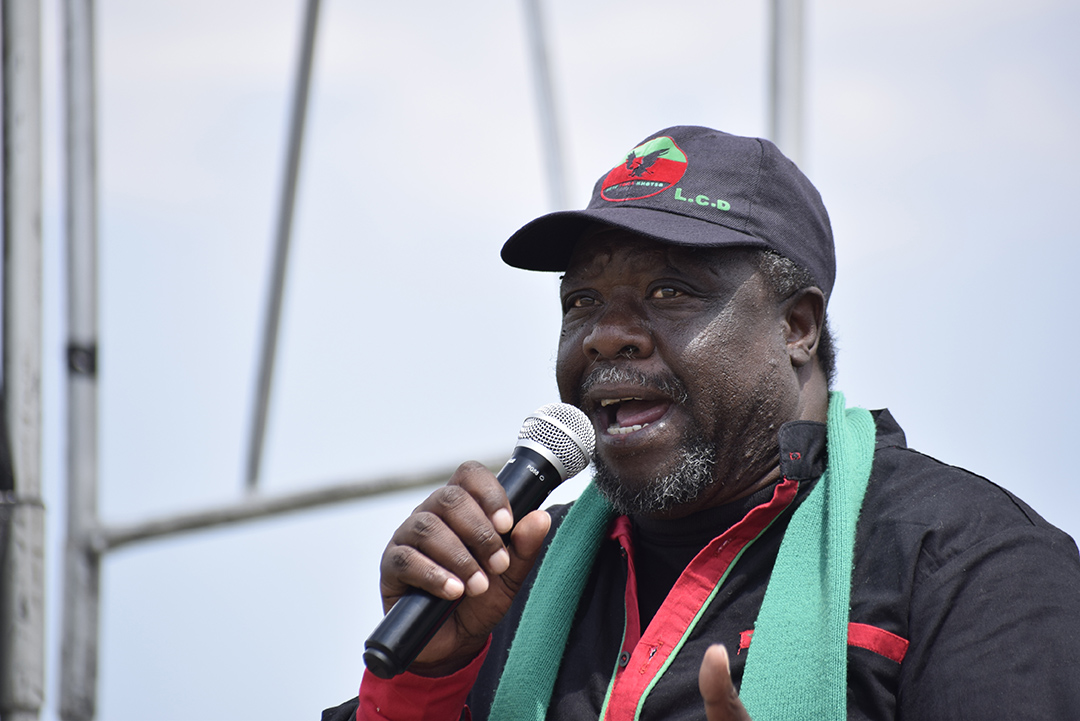
Lesotho Congress for Democracy (LCD) chairperson Thabang Pheko addresses supporters at an electoral rally in Maseru on October 4, 2022. Lesotho holds parliamentary elections on Friday, which analysts expect to deliver another coalition government, unlikely to tackle poverty and instability. Photo: MOLISE MOLISE / AFP
Introduction
Lesotho celebrated 56 years of independence on 4 October 2022 after gaining independence from Britain in 1966. In the past few years, the country has experienced cyclical episodes of coups, attempted coups, electoral violence, assassinations of high-profile individuals and political instability. However, the country has embarked on a process of devising and implementing multisectoral reforms including constitutional and security sector reforms. These reforms have been met with challenges but are key to presenting a long-lasting solution to Lesotho.
Coalition governments have long been a part of the electoral and political environment since the introduction of an MMP electoral model in 2002, done to have an inclusive parliament. With support from some opposition parties, the All-Basotho Convention (ABC) has ruled run the country since 2017 as the leading coalition member, but divisions within the party have seen two Prime Ministers over the past five years. The ABC has experienced a leadership crisis, Thomas Thabane who stepped down in 2020 after being charged with the murder of his ex-wife was replaced by Moeketsi Majoro who has since been replaced by Nkaku Kabi as the party leader.
Election contenders
- More than 50 parties are contesting the polls. The main parties contesting the elections include the ruling party ABC, the Basotho Action Party (BAP), the Democratic Congress (DC), and the Revolution for Prosperity (RFP) party.
- If the ABC attains a majority, current Prime Minister Majoro is expected to be replaced by Nkaku Kabi who won the party’s leadership election earlier this year by 723 votes compared to Majoro’s 609.
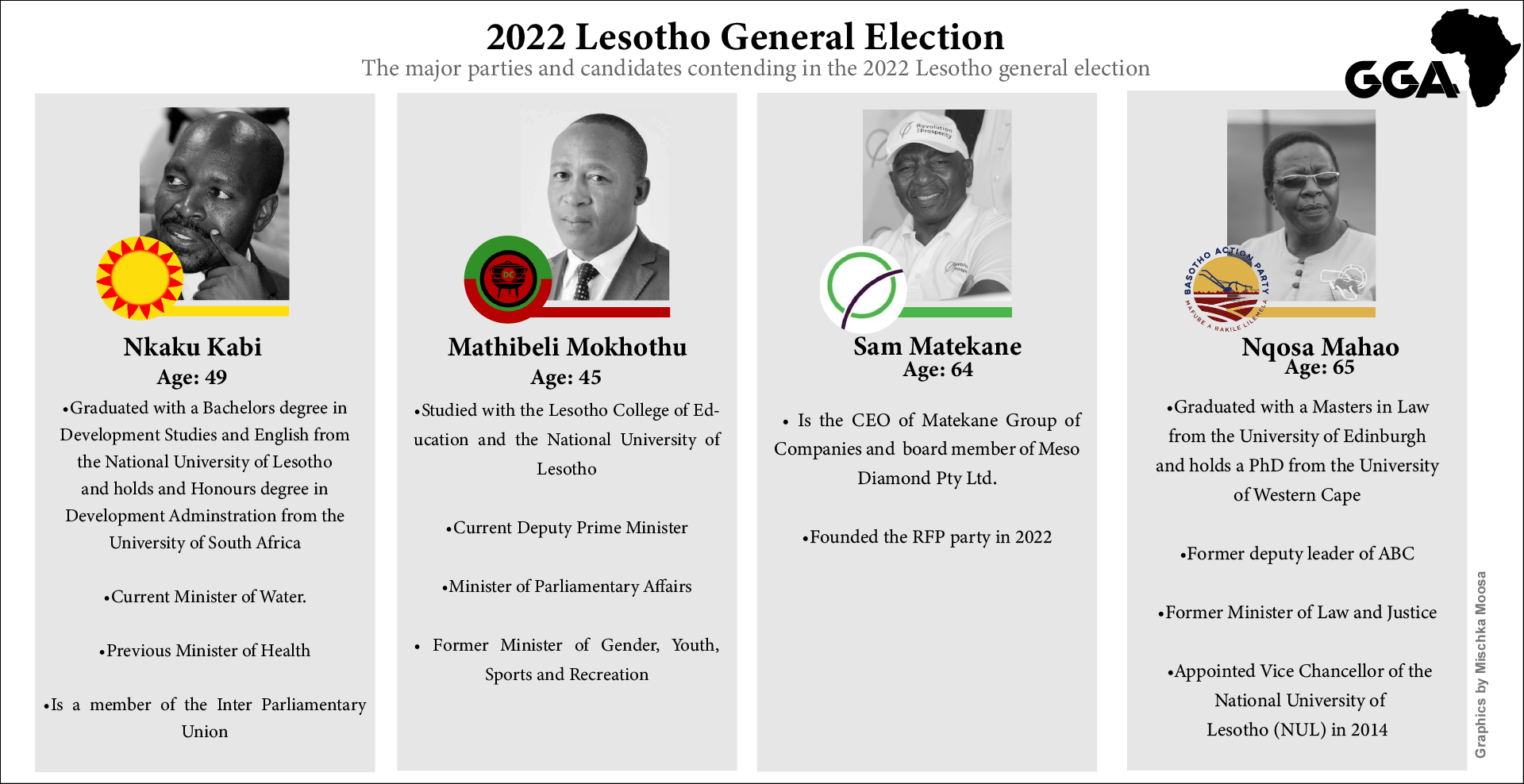
Coalition History
- In 2012, Tom Thabane became Prime Minister after forming the first coalition government between ABC, BNP, and LCD. The coalition later collapsed due to a power struggle between Thabane and Deputy Prime Minister Mothejoa Metsing.
- The second coalition was formed consisting of seven political parties, namely: the DC, the Lesotho Congress for Democracy (LCD), the Popular Front for Democracy (PFD), the Basotho Congress Party (BCP), the Lesotho People’s Congress (LPC), the Marematlou Freedom Party (MFP) and the National Independent Party (NIP). Even though ABC won the majority constituencies it did not manage to form a coalition. Dr Pakalitha Mosisili (DC) then was appointed Prime Minister.
- In 2017, Thabane became Prime Minister again after forming a third coalition which was considered the grand coalition. The coalition consisted of ABC, the Alliance of Democrats (AD), BNP, and the Reformed Congress of Lesotho (RCL). The coalition collapsed after months of pressure from political parties for Thabane to resign after being named as a suspect in the murder case of his ex-wife.
- Analysts predict the 2022 elections will see the formation of a coalition formed by BAP, RFP, and/or ABC.
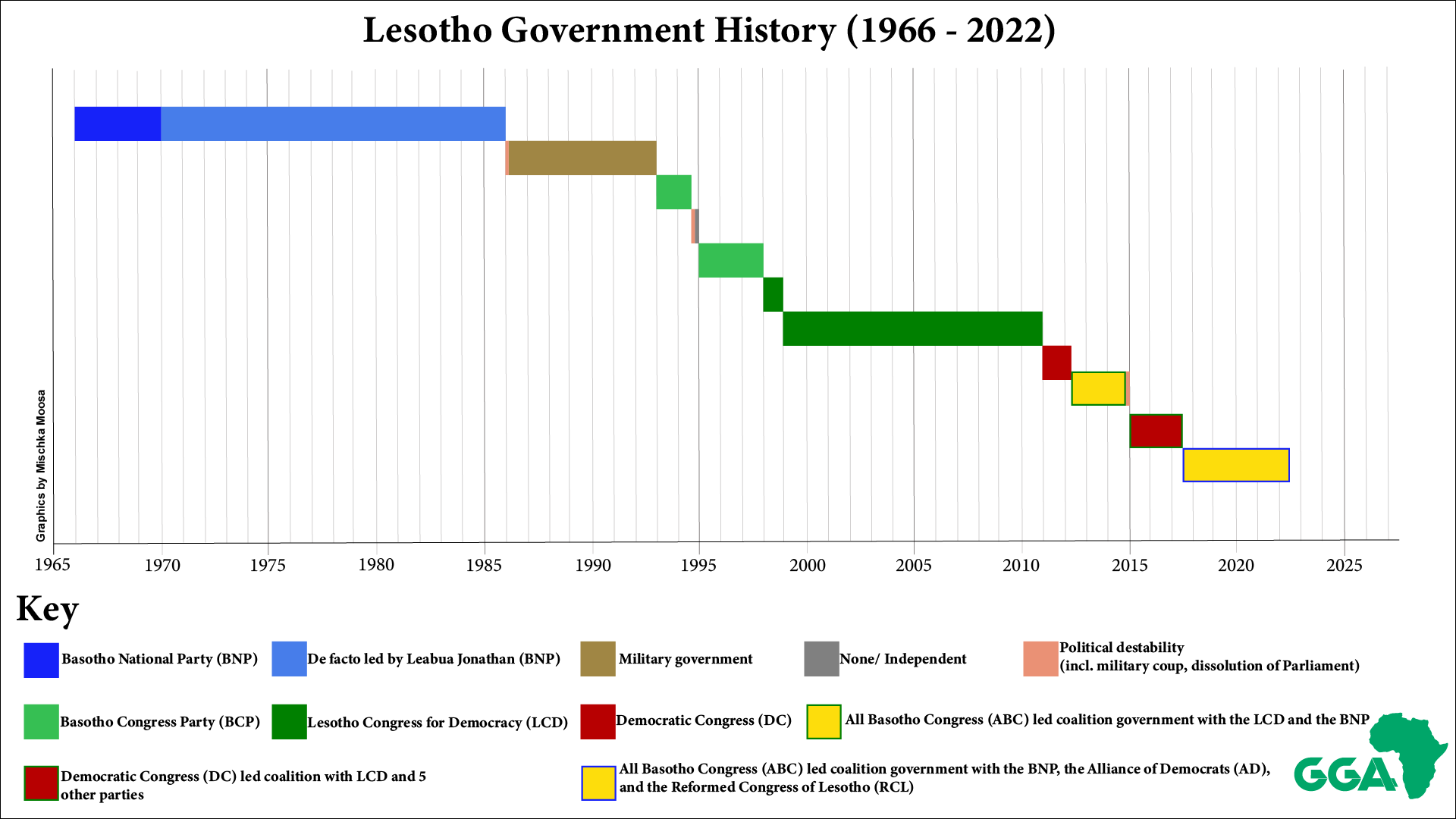
Political Instability
- Tensions in the country increased in 2014 as a standoff between Thabane and Metsing ensued over the lack of constitutional reforms, and an attempted coup occurred. Thabane suspended parliament and fled to South Africa.
- After the early elections of 2015, infighting and violence continued, with party leaders living in exile citing safety concerns.
- In 2020, Thabane suspended parliament citing covid reasons, however growing calls for his resignation and a vote of no confidence due to the murder allegations against him led to the collapse of his coalition and eventually his resignation.
- A pledge to implement reforms and pass the constitution bill was signed in June 2022 by members of parliament but was not passed in time because of disagreements over the aspects of the bill.
- Majoro declared a State of Emergency in August 2022. The purpose was to recall Parliament to pass two bills amending the Constitution and the Electoral Act. Both amended bills were passed.
- In September, the State of Emergency was declared unconstitutional by the High Court of Lesotho (sitting as the Constitutional Court), after a challenge was filed.
International election observer participation
- SADC Electoral Observation Mission (SEOM) deployed observers to Lesotho on 25 September. The observers will be deployed in ten districts and are expected to release a Preliminary Statement regarding the mission’s observations on 9 October 2022.
- The EU has for the first time deployed the EU Election Observation Mission (EOM) to observe elections in Lesotho. The deployment includes 30 short-term observers and 10 experts and analysts.
- The Commonwealth Secretary-General has also deployed an observer team. Members will be deployed to various parts of the country. The group will be led by former President of Seychelles, HE Danny Faure.
- The African Union Election Observation Mission (AUEOM) will be in the country until 13 October 2022. The AUEOM comprises of 35 short-term observers and three Core Teams of electoral experts.



